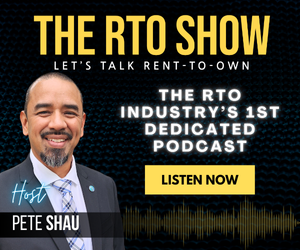Everyone’s seeking connection in today’s disjointed, divided world – four culture gurus offer their wisdom on how to build a business with belonging
WHILE ‘cancel culture’ may be alive and well in the zeitgeist, rent-to-own should be focused on the exact opposite: creating, strengthening, honoring, and intensifying their cultures – because culture is what will define and differentiate companies in today’s technology-driven business landscape.
That was the message from four expert (and well-reviewed) presenters at RTO World 2023 – two from inside the industry: RNR Tire Express President Adam Sutton and members of the leadership team at Majik Enterprises International Inc. dba Majik Rent-To-Own; and two from outside: keynote speakers Joseph Kopser and Pam Nemec.
While each presentation focused on different facets of brand culture, all agreed on the importance of a compelling culture in today’s post-pandemic work world. To improve your employee recruitment and retention, as well as your customer sales and loyalty, it’s time to join the RTO Culture Club.
JOSEPH KOPSER: BUILD YOUR TRIBE
‘’So if you’re age 25 to 35, then it’s understandable you don’t trust the world, because you have known a life of only tremendous turmoil. But they do trust their tribe, the people they feel a sense of belonging with.”
Joseph Kopser
Joseph Kopser is a technology entrepreneur, Army combat veteran, author, and lifelong problem-solver committed to building teams to take on today’s challenges.
“The biggest problem you have to think about as you’re building your team, building your culture, is which actually comes first?” Kopser began. “Is it a great culture that attracts the ideal teammates, or do you need to find the right teammates to create a great culture? I say, begin with both. But if you have to focus on one, then focus on people.”
Kopser pointed out that teambuilding is especially tough nowadays, because the key demographic for hiring – 25- to 35-year-olds – doesn’t trust easily.
“If you’re 25 to 35 years old, what have you seen during your lifetime?” he noted. “The Twin Towers come down, family and neighbors deploy for 20 years of combat, the economy collapses, families lose their jobs and their homes, things begin to improve, then BOOM, the pandemic, the insurrection, the news, the infighting.
“So if you’re age 25 to 35, then it’s understandable you don’t trust the world, because you have known a life of only tremendous turmoil. But they do trust their tribe, the people they feel a sense of belonging with. So when you’re thinking about building your team, you must think about how to create that feeling of belonging.”
Kopser referred to his military background as an excellent example of tribe-building.
“The camaraderie among veterans that comes from that shared sense of service is belonging I wouldn’t trade for the world,” he said. “So you’ve got to figure out with the successful teammates you have, ‘How do I find more like you? How do you help me recruit them and bring them in?’ Because friends at work will make work more friendly.”
Kopser also remarked on the role technology can play in building a team – because belonging no longer has to happen in-person.
“My daughter recently went to a wedding in Denver for one of her online gaming friends,” he related. “She had never met any of the ten people she went to visit, but because they all play the same games together, they were besties and they had a wonderful weekend.
“But remember, while technology can be a help, none of it will replace you and what you do best, which is build a team and create a sense of belonging,” concluded Kopser. “That’s how you’ll attract good talent, and that’s how you’ll keep great team members. When it comes to customer service, you can use every AI tool in the world, but a cold bottle of water on a hot day goes way farther than a whole lot of ChatGPT.”
ADAM SUTTON: IDENTIFY YOUR DRIVERS
‘’We want to make price irrelevant; if customers are complaining about price, then they’re telling you their experience didn’t justify what they’re paying.”
Adam Sutton, RNR President
RNR President Adam Sutton’s RTO World education session, Creating a Winning Culture, began with Sutton asking his audience two key questions: What is your company driven by? And what would your team members say it’s driven by?
“Over the past five years, our company has been focusing on defining three key elements of our business: Our mission, our purpose, and our vision,” Sutton began. “So, our mission is To be the best tire and wheel concept in America. Our purpose is Serve, not service. And our vision is Changing lives. John Maxwell, one of my favorite leadership authors, says ‘Values are like the soul of an organization.’ And no one wants to be part of a soulless organization, so we also identified our core values.”
According to Sutton, a company’s core values must be practical, tactical, and trackable, as well as communicated, expected, and inspected. Not surprisingly, Sutton and RNR’s leadership team created yet another triad to infuse their teammates with the business’ core values.
“We’ve just rolled out a new companywide concept called DX3,” explained Sutton. “The D is for Driven, the X acts as a multiplier – a factor that amplifies the base value – and the 3 represents our three core values. So, at RNR, we’re driven by: our Culture, which reflects our mission to be the best tire and wheel concept in America; our Customers, who are our purpose – we’re here to serve our customers, not just provide them with service; and our Community, which is our vision – we want to impact our community by changing lives, elevating our team members into a different economic status and changing generational wealth forever.”
Sutton stressed how RNR is working to transcend the transactional, with both its team members and its customers.
“Our company culture should be transformational, not transactional,” he attested. “We want to transform the lives of our people. We tell our teammates, ‘I would love for you to stay with us forever, but if you leave, then we want you to leave better than when you arrived here.’ That’s a transformational culture.
“And our customer experience should be relational rather than transactional,” Sutton continued. “We call it creating a relational VIP experience. We want to make price irrelevant; if customers are complaining about price, then they’re telling you their experience didn’t justify what they’re paying. If you can create an extraordinary experience and concentrate on value over price, then you’re going to not only create a better experience, but you’ll also generate more sales.”
Sutton concluded by illustrating the circular connection among RNR’s core values and company drivers.
“When you strive to create an exceptional culture, that’s going to positively impact your customer experience. When you have an excellent customer experience, that’s going to positively impact your community. And when you positively impact your community, when your name is out there and they’re seeing all the great things you’re doing, that’s going to improve your culture.”
PAM NEMEC: SHARE YOUR STORIES
‘’When you show your values through a story, people begin to see what those values look like. It brings your culture to life.”
Pam Nemec
Pam Nemec is a brand culture expert, author, and speaker. She spent more than 20 years stewarding a multibillion-dollar restaurant brand familiar to Texans: Whataburger.
“When it comes to connection, it doesn’t just lie in the heart of a few company leaders at the top; you’ve got to get it into the hearts of everyone in your organization,” Nemec affirmed. “Recruiting and retention are so important, but right now, what we’re up against is an extremely disconnected workforce. Seventy-seven percent of employees say building relationships with people is the thing that brings them the most job satisfaction – but 30 percent say they feel invisible at work, and only 24 percent say they believe their employers care about their wellbeing.
“There is no magic bullet,” she continued. “How you go about connecting people to your organization is a holistic approach, and you’ve got to get the inside right if you want the outside to flourish. And by the way, production increases up to 25 percent when employees feel connected and like they’re part of your organization.”
Nemec has created a model of seven steps to building a remarkable brand from the inside out; during her presentation, she focused on two: communicating your culture and cascading it to customers.
“It’s one thing to talk about your values, but it’s another thing to show your values at work,” said Nemec. “When you show your values through a story, people begin to see what those values look like. It brings your culture to life.”
According to Nemec, there are three necessary elements to accomplishing this: a structure, a system, and a story.
“Do you have someone solely responsible for your communications?” Nemec inquired. “If you don’t, communications begins to slide to the bottom of the list – and good communications is essential to good performance. Your communications person is your structure; consider them as a reporter who knows what’s happening with your business, who understands your values, who establishes systems inside and outside the company to gather stories and put them back out on the platforms they’ve established for you – newsletters, videos, social media, community outreach.
“Now you get to tell good stories, and that’s what will really bring your brand to life. The values you have up on your website come to life, and you begin to humanize your brand.”
People will want to be part of your brand story, said Nemec – especially if your stories illustrate an organization with purpose, with pride, and with a dash of cool.
“Remarkable brands are built from the inside out,” Nemec concluded. “And nothing will drive your performance like the passion of your people. What makes a culture remarkable is your people getting behind it and putting something special out that will connect with your customers.”
THE MAJIK TEAM: FIGHT COMPLACENCY
‘’We must be transparent with all of our team members, even when it’s very difficult, it’s challenging, but we must commit to it despite difficult days and hard decisions. We need to walk that walk, and do it every single day.”
Chief Operating Officer Mike Simoncini
Majik Rent-To-Own President Dan Fisher, Chief Operating Officer Mike Simoncini, and District Manager Patric Hartman tag-teamed during their intriguingly titled RTO World education session Majik’s 2023 Culture Reset: Everybody’s Got a Plan Until You Get Punched in the Face!
“Going into 2022, we were kind of riding high, thinking we had this amazing culture,” Fisher began. “At the end of 2022, we ended up down on potential rent for the first time in about seven years. And we realized that during COVID, we had let a lot of complacency slip into our company. So we were planning to do a culture reset for 2023 … then we got punched in the face.”
The leadership team discovered one of Majik’s longtime managers was cheating on a contest so that they could win an extraordinary bonus and a free trip. So they were terminated, along with two other people at that store. Within a month, it was discovered that another longtime manager was letting all sorts of inappropriate activities happen at his store – racist jokes, sexist comments, etc. So they were terminated, along with three other people at that store.
“We had this great culture, then suddenly, we had these dumpster fires,” said Fisher. “It took two managers we had believed to be exemplary of our culture and left us with two stores with only two employees. But leadership is about the long game. It’s about commitment and consistency – doing the little things every single day that show you care about your employees’ success. That you care enough to teach them skills, discipline them when necessary, and help them develop self-confidence so that they can keep moving forward and succeed.”
Subsequently, Majik’s leadership team has been “doubling down” on its culture, holding all employees to the company’s core values, refocusing on profit-based bonus programs, and ensuring the right people are in the right positions.
“You have to take people according to their strengths,” Hartman noted. “We had a manager who oversaw a $2-million-revenue store, loved the company, and exuded our core values, but was clearly not in the right seat to best use their skillset. So we moved them into a different job, and they actually thanked us. Now they’re an extremely successful assistant sales manager for us at another store, and have helped us improve results there.”
“We must be transparent with all of our team members, even when it’s very difficult,” agreed Simoncini. “If they’re dedicated, showing up, and working hard, then find the right seat for them – set them up to succeed. It’s challenging, but we must commit to it despite difficult days and hard decisions. We need to walk that walk, and do it every single day.”
Kristen Card has been a contributing writer for RTOHQ: The Magazine for 20 years.









